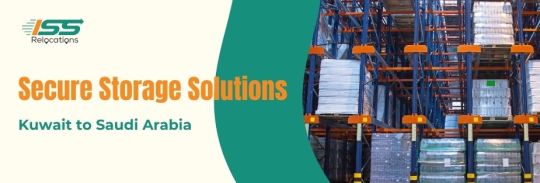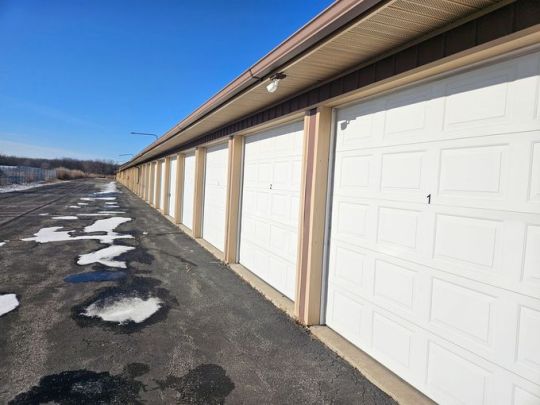#SafeStorage
Explore tagged Tumblr posts
Text
Secure Storage Solutions – Kuwait to Saudi Arabia

Looking for secure storage solutions from Kuwait to Saudi Arabia? We offer reliable, temperature-controlled, and fully monitored storage facilities to keep your belongings safe during transit or long-term holding. Whether for personal or business needs, our cross-border storage services ensure peace of mind and smooth logistics. Trust us for secure, hassle-free storage between Kuwait and Saudi Arabia.
Read more: https://iss-relocations.com/blog/storage-solutions-kuwait-to-saudi-arabia/
#SecureStorage#KuwaitToSaudi#StorageSolutions#CrossBorderLogistics#SafeStorage#GCCLogistics#WarehouseServices#ISSRelocations
0 notes
Text
Short-Term vs. Long-Term Storage: Which One’s Right for You?
Whether you're relocating, renovating, or just need to declutter, choosing the right storage solution is key. But how do you decide between short-term and long-term storage?
Find out which option fits your needs best in our guide on short-term vs. long-term storage and make your move (or pause) easier and smarter
#StorageSolutions#ShortTermStorage#LongTermStorage#MovingTips#Decluttering#RelocationSupport#StorageGuide#SafeStorage#InteremRelocations#OrganizedLiving#HomeStorageTips#StorageAdvice#SmartRelocation#MovingAndStorage#StorageOptions
0 notes
Text
#HDPESolutions#ChemicalStorage#IndustrialSafety#PlasticContainers#HDPECans#SaraswatiPlastics#MadeInIndia#IndustrialPackaging#SafeStorage#ChemicalIndustryIndia
0 notes
Text
5 Mistakes to Avoid When Choosing a Storage Facility in Norwalk, CT
Whether you’re relocating, downsizing, or just decluttering your home, choosing the right storage facility is a big decision. Norwalk, CT offers many storage options, but not all are created equal. Making the wrong choice can lead to unnecessary stress, extra costs, or even damage to your belongings.
To help you make a smart and informed decision, we’ve outlined five common mistakes people make when selecting a storage facility in Norwalk, CT — and how you can avoid them.
1. Ignoring Security Features
One of the biggest mistakes renters make is overlooking the security measures offered by a storage facility. Your belongings deserve more than just a lock and key. Reputable storage services in Norwalk, CT should offer:
24/7 video surveillance
Gated access with personal codes
On-site staff during business hours
Alarm systems for each unit
Always ask about the facility’s security protocols and don’t settle for less. Choosing a storage unit without solid safety features could put your valuables at risk.
2. Underestimating the Space You Need
It’s easy to miscalculate the amount of space required. Many people choose a unit that’s too small to save money, only to discover they can’t fit everything inside. Others overpay for a unit that’s far too big.
Before selecting a storage service in Norwalk, CT, take inventory of the items you plan to store. Many facilities offer sizing guides or online calculators. If you’re unsure, ask the staff for help. It’s better to spend a little time planning than to waste money or cram your things in dangerously.
3. Overlooking Climate Control
Not all items are built to withstand heat, humidity, or freezing temperatures. Electronics, wooden furniture, artwork, and important documents can deteriorate quickly if stored in poor conditions.

4. Not Reading the Contract Carefully
Storage agreements are legal contracts — and unfortunately, many renters sign them without reading the fine print. Key items to watch out for include:
Auto-renewal policies
Late fees and grace periods
Cancellation terms
Insurance coverage
If you’re using local moving services in Norwalk, CT to help with your relocation, ask if they have any partnerships or special arrangements with storage facilities. This might provide added benefits or savings.
5. Choosing Solely Based on Price
It’s tempting to pick the cheapest storage unit you can find, but price shouldn’t be your only factor. Inexpensive facilities often cut corners on cleanliness, security, and customer service.
Instead, look for a balance between affordability and quality. Read reviews, visit the facility in person, and ask questions. Trustworthy providers of local movers in Norwalk, CT may be able to recommend reputable storage partners they’ve worked with.
Choose the Right Storage Partner in Norwalk and Nearby Areas
Avoiding these five mistakes can save you time, money, and frustration. Whether you’re storing household goods, seasonal items, or preparing for a move, choosing a well-maintained and secure facility is crucial.
If you’re looking for a reliable and professional solution, Expert Movers and Storage Inc. has you covered. We proudly serve Norwalk, CT and nearby areas like Westport, Stamford, Darien, Wilton, and Fairfield. Whether you need moving help or short- and long-term storage, our team offers exceptional service and peace of mind.
Contact Us Today
📞 Phone: 1 833–333–0450
📧 Email: [email protected]
Let Expert Movers and Storage Inc. be your trusted partner in simplifying your storage and moving experience.
#StorageTips#StorageSolutions#MovingAndStorage#DeclutterYourSpace#SafeStorage#ClimateControlledStorage#StorageMistakes#NorwalkCT#NorwalkStorage#FairfieldCountyStorage#WestportCT#StamfordCT#DarienCT#WiltonCT#FairfieldCT
0 notes
Text
How to Store Laboratory Chemicals Safely
In any laboratory—be it educational, industrial, clinical, or research-focused—chemical safety is non-negotiable. Improper storage of chemicals can lead to dangerous reactions, toxic exposure, fires, or environmental hazards. In contrast, safe chemical storage protects not just the people working in the lab, but also the equipment, facilities, and data integrity.
Whether you're a lab technician, safety officer, or student just getting started, this guide outlines best practices for storing laboratory chemicals safely.
Why Is Safe Chemical Storage Important?
Improper storage of chemicals can result in:
Accidental spills or leaks
Dangerous chemical reactions (fire, explosion, toxic fumes)
Injury or illness due to exposure
Contamination of experiments
Regulatory penalties and lab shutdowns
Safe storage:
Prevents incidents
Improves lab organization
Ensures compliance with safety regulations (OSHA, NFPA, GHS, etc.)
Step 1: Classify Your Chemicals
The first step to safe storage is identification and classification. Every chemical should be clearly labeled and grouped according to its hazard class, such as: Hazard ClassExamplesFlammableEthanol, acetone, methanolCorrosiveHydrochloric acid, sodium hydroxideOxidizerHydrogen peroxide, nitric acidToxic/PoisonousCyanides, mercury compoundsReactiveSodium metal, potassium permanganateCompressed gasesOxygen, nitrogen, carbon dioxideCryogenic substancesLiquid nitrogen, dry ice
Always refer to the Safety Data Sheet (SDS) for specific storage instructions.
Step 2: Label All Containers Properly
Clear, accurate labeling is a must. Every chemical container should include:
Full chemical name (no abbreviations)
Concentration and volume
Date of receipt or opening
Hazard pictograms (GHS symbols)
Name of responsible person or department
Never store a chemical in an unmarked or repurposed container like water bottles or food jars.
Step 3: Use Appropriate Storage Cabinets
✅ Flammable Chemicals
Store in a flammable storage cabinet (metal, fire-resistant)
Keep away from ignition sources
Limit quantity per cabinet as per local fire codes
✅ Corrosive Chemicals
Store in corrosion-resistant cabinets (typically PVC-lined or plastic)
Acids and bases should be stored separately to prevent reactions
Avoid storing above eye level to prevent splash injuries
✅ Oxidizers and Reactives
Store in cool, dry, well-ventilated areas
Away from flammables, combustibles, and organic materials
Use tightly sealed, compatible containers
✅ Toxic or Highly Hazardous Chemicals
Store in locked poison cabinets or secured areas
Use secondary containment (trays or tubs) to contain leaks
Clearly label the hazard on the cabinet door
✅ Compressed Gases
Secure cylinders upright with chains or straps
Store in well-ventilated rooms, away from direct sunlight and heat
Keep oxygen away from flammable gases or materials
Step 4: Segregate Incompatible Chemicals
Never store incompatible chemicals together. Dangerous reactions can occur if certain substances mix—even accidentally.
Some key incompatibilities include: Chemical 1Do Not Store WithAcidsBases, cyanides, sulfidesFlammablesOxidizers, acidsOxidizersOrganics, flammables, reducersSodium/potassiumWater, alcoholsAmmoniaBleach, acids
Use color-coded labels or storage zones to visually identify compatibility groups.
Step 5: Maintain Proper Environmental Conditions
💨 Ventilation
Storage areas must be well-ventilated
Avoid storing volatile chemicals in closed cabinets without air circulation
Use fume hoods or ventilated cabinets for highly volatile or toxic materials
🌡 Temperature Control
Avoid excessive heat, humidity, or freezing unless specified
Store temperature-sensitive chemicals (e.g., enzymes, some acids) in refrigerated units
Use explosion-proof refrigerators for flammable chemicals—never standard domestic units
Step 6: Practice Secondary Containment
Use trays or bins under chemical containers to catch drips, leaks, or spills. This is especially important when storing:
Liquids (acids, solvents, toxins)
Multiple small bottles in a single cabinet
Chemicals in high-risk or seismic areas
Secondary containment also helps in case of breakage during earthquakes or accidental knocks.
Step 7: Limit Quantities and Access
Store only the minimum necessary quantity in the main lab
Keep larger volumes in a designated chemical storage room
Restrict access to hazardous chemicals to trained personnel only
Lock high-risk materials like poisons, drugs, or explosives
Step 8: Maintain an Updated Chemical Inventory
Keeping a detailed inventory helps with compliance, safety, and emergency response. Your inventory should include:
Chemical name and formula
Quantity and location
Date of purchase or expiration
Hazard classification
Storage requirements
Use barcode systems or digital software to streamline management.
Step 9: Prepare for Spills and Emergencies
Even with best practices, accidents can happen. Be prepared with:
Spill kits (neutralizers, absorbents, PPE) near storage areas
Fire extinguishers and eyewash stations
Clear emergency signage and exit paths
Training sessions on chemical spill response
Post emergency contact numbers and procedures on lab walls.
Step 10: Train Your Team
All lab personnel should be trained in:
Reading and using Safety Data Sheets (SDS)
Proper labeling and segregation
Spill prevention and response
Use of PPE during chemical handling
Storage policies and updates
Hold regular safety audits and update training annually or when new chemicals are introduced.
#LabSafety#ChemicalStorage#SafeLabPractices#LaboratoryManagement#HazardousMaterials#ScienceSafety#ChemicalHandling#ResearchSafety#LabCompliance#SDS#OccupationalSafety#LabSetup#LabBestPractices#SafeStorage#CleanLabEnvironment
0 notes
Text
Garage Add-On
A garage addition gives you safe space for cars, tools, and storage. It also helps keep your home clean and clutter-free. Need a workshop? Your garage can be that too!

#GarageAddition#CarSpace#ExtraStorage#CleanHome#HomeProjects#GarageGoals#ToolSpace#GarageBuild#SafeStorage#HomeUpgrade
0 notes
Text
What’s a Bunded Tank and Why Might You Need One?

If you store oil, fuel, or chemicals at home, on a farm, or for your business, keeping them safe is extremely important. Leaks and spills can harm the environment, damage property, and lead to costly clean-ups. That’s why you need a strong, reliable storage tank that won’t leak or cause problems — and this is exactly where a bunded tank becomes the smart choice.
A bunded tank offers extra protection by having two layers — helping to prevent accidents and ensuring safe storage even if something goes wrong with the inner tank. Whether you’re storing heating oil for your home, diesel for farm machinery, or fuel for generators, a bunded tank provides peace of mind and helps you stay compliant with safety rules.
In this easy-to-understand guide, we’ll explain exactly what a bunded tank is, how it works, and why it’s often required or highly recommended. We’ll also look at different types of bunded tanks — including plastic, steel, slimline, and low profile bunded oil tanks — so you can choose the right one that fits your space, budget, and needs.
What Is a Bunded Tank?
A bunded tank is a tank that has two layers — an inner tank and an outer tank. The inner tank holds the liquid, such as oil or fuel, while the outer tank acts like a safety barrier in case of leaks or spills. Think of it as a tank sitting inside another tank. If the inner tank breaks or leaks, the outer layer — called the bund — catches the liquid and keeps it from escaping into the ground or nearby areas.
This double-layered design gives extra protection and is much safer than single-skin tanks. That’s why bunded tanks are often required by environmental laws and regulations, especially in places where spills could cause harm to soil, water, or wildlife. Whether you're storing heating oil at home or fuel for machines on a farm, using a bunded tank can prevent costly damage and protect the environment.
Why Might You Need a Bunded Tank?
You might need a bunded tank for many reasons — safety, legal compliance, and protecting your property. Let’s explore why choosing a bunded tank is often the best decision:
1. Prevent Spills and Leaks
No one wants oil or fuel leaking into the ground or near buildings. A bunded tank reduces the risk of this happening because if the inner tank leaks, the outer tank catches the spill. This prevents pollution and expensive cleanup work.
2. Stay Legal
Many government rules require bunded tanks, especially if you’re storing over 200 litres of oil or are near water sources. Failing to follow these rules can lead to heavy fines or penalties. Using a bunded tank shows you’re acting responsibly and following safety standards.
3. Protect Property and Equipment
Oil spills can stain driveways, damage equipment, and even affect nearby plants or buildings. A bunded tank keeps oil securely stored, reducing the risk of accidental damage around your home or business.
4. Peace of Mind
Knowing your oil or fuel is safely stored helps you sleep better. A bunded tank lowers the risk of accidents, fines, or leaks and gives you long-term confidence in your setup.
Whether you’re a homeowner, farmer, or business owner, using a bunded oil tank is a safe and smart move.
What Can You Store in a Bunded Tank?
Bunded tanks can be used to store many different types of liquids. These tanks are designed to keep these liquids safe from leaks, rain, or tampering.
Common liquids stored include:
Heating oil for homes and buildings
Diesel for vehicles and equipment
Waste oil from engines or machinery
Kerosene used in heaters or lighting
Chemicals for farming or industry
Rainwater or greywater for non-drinking purposes (such as irrigation or toilets)
Because of their strong build and leak prevention, bunded tanks are suitable for both homes and large industrial sites. Just make sure the tank you choose is approved for the type of liquid you’re storing.
Types of Bunded Oil Tanks
Let’s now look at the different types of bunded oil tanks available. Each type has its own design, features, and best-use scenario.
1. CBunded Oil Tanks
CBunded Oil Tanks (short for "combined bunded oil tanks") are complete storage solutions. They include both the inner and outer tank and are built with user convenience and safety in mind. These tanks are popular for both home and light commercial use.
Key Benefits:
Double skin protects against spills
Often includes built-in gauges, lids, and secure fittings
Easy to maintain and check oil levels
Suitable for storing heating oil or diesel
They come in various sizes and can be installed outdoors or in sheltered areas. Their all-in-one design makes them a great starting point for people new to oil storage.
2. Plastic Bunded Oil Tanks
Plastic bunded oil tanks are made from durable polyethylene. They’re light, strong, and won’t rust over time, even in rainy or coastal areas. The outer tank protects the inner tank from UV damage and wear.
Pros:
Long-lasting and low maintenance
Resistant to corrosion, algae, and chemicals
Cheaper than steel tanks
Available in many sizes and shapes
Plastic bunded oil tanks are a popular choice for domestic properties and smaller commercial spaces. If you need something lightweight, affordable, and weatherproof, plastic is a great option.
3. Steel Bunded Oil Tanks
Steel bunded oil tanks are the toughest option. They’re built from heavy-duty steel and often used in demanding environments like farms, industrial sites, and transport yards.
Pros:
Extremely strong and secure
Resistant to fire, impact, and vandalism
Suitable for large oil or fuel volumes
Can be painted or coated for extra weather protection
While they’re more expensive and heavier to install, steel bunded oil tanks offer peace of mind for sites that need extra durability. They're especially useful where fuel theft or damage could be a concern.
4. Slimline Bunded Oil Tanks
Slimline bunded oil tanks are designed to fit into narrow or hard-to-reach spaces. They have a tall, thin shape that makes them easy to install along walls or between buildings.
Pros:
Perfect for narrow pathways or side yards
Easy to hide or blend with surroundings
Come in plastic and steel versions
Still provide full bunded protection
Slimline bunded oil tanks are ideal for urban homes, narrow gardens, or properties where space is limited. They don’t take up much room but still offer excellent oil storage capacity.
5. Low Profile Bunded Oil Tanks
Low profile bunded oil tanks are shorter in height but wider in shape. These tanks are great for places where you can’t install a tall tank — such as under windows, decks, or low walls.
Pros:
Easy to access for filling and servicing
Lower visual impact — blends well with garden layouts
More stable due to low centre of gravity
Ideal for residential use
Low profile bunded oil tanks are popular with homeowners who want a discreet solution that doesn’t spoil the view or stand out too much.
How to Choose the Right Bunded Tank
When choosing a bunded tank, ask yourself these questions:
What liquid will you store? Make sure your tank is certified for oil, diesel, chemicals, or water.
How much do you need to store? Tank sizes range from 500 to over 10,000 litres.
Where will it be placed? Consider space, access, sunlight, and how close it is to buildings.
Do you need a plastic or steel tank? Plastic is cheaper and lighter; steel is stronger.
Would slimline or low profile help? Choose based on the shape and space available.
Do you need extras? Some tanks include gauges, locks, filters, or fuel lines.
Spending a little more time choosing the right tank can save you money, hassle, and risk in the long run.
Maintenance Tips for Bunded Tanks
Even though bunded tanks are built for safety, regular checks are still important. Follow these simple tips:
Inspect monthly: Look for cracks, rust, or signs of leaks.
Keep the bund dry: If you see oil or water in the outer tank, find out why and fix the problem.
Clean yearly: Remove leaves, water, or sludge that may collect over time.
Check gauges and fittings: Make sure your tank is not overfilled and connections are tight.
Lock the tank: To prevent theft or tampering, use a secure lock on the lid or access point.
With proper care, your bunded tank can last 15 to 25 years or more, depending on the material and location.
Final Thoughts
A bunded tank is a smart, secure way to store oil, fuel, or other liquids safely and responsibly. It offers double-layer protection, helping you avoid environmental damage, unexpected leaks, and costly cleanups. Bunded tanks are built to meet modern safety standards and give you peace of mind — whether you're a homeowner, farmer, or business operator.
Whether you choose a tough bunded oil tank for durability, a lightweight and rust-proof plastic bunded oil tank, a slimline bunded oil tank to fit narrow spaces, or a low profile bunded oil tank that blends neatly into your property, there’s a reliable solution for every type of need and location. These tanks are designed to match your storage goals, your available space, and your long-term usage.
CBunded oil tanks are particularly useful as an all-in-one, ready-to-use option. They’re ideal for people who want a simple, efficient, and fully compliant tank without needing to add separate components. They’re often pre-fitted with gauges, secure lids, and fittings for hassle-free installation.
With the right tank, regular maintenance, and smart planning, you can enjoy safe and worry-free storage for many years. Whether you're storing heating oil for your home or diesel for your machinery, a bunded tank is an investment in safety, security, and long-term savings.
#BundedTank#FuelStorage#WaterStorage#EnvironmentalSafety#TankSafety#SpillPrevention#StorageSolutions#OilTank#FuelManagement#IndustrialStorage#TankRegulations#HomeHeatingOil#DoubleSkinTank#TankCompliance#SafeStorage
0 notes
Text
youtube
Sometimes, homes get smaller as memories grow bigger—but that doesn’t mean you need to throw anything away. Xtended Space helps you store your old but valuable items with complete care and security, at locations close to you. Enjoy storage at up to 40% lower rates, without the stress of packing or transportation. Say goodbye to clutter, not to your cherished things. 📞 Just one call, and we’ll manage everything from start to finish. Book your storage now: (+91)-900-9000-798 For more details visit our website: www.xtendedspace.com
#StorageSpace#SelfStorage#HouseholdStorage#FurnitureStorage#DocumentStorage#ITAssetStorage#OfficeFurnitureStorage#GymItemStorage#AntiqueStorage#SafeStorage#SecureStorage#SmartStorage#AffordableStorage#StorageSolutions#DeclutterYourSpace#XtendedSpace#Youtube
0 notes
Text
Pack Rat Mini Storage
Secure Climate Controlled Storage in Neenah & Appleton WI
Looking for dependable, secure, and climate-controlled self storage in Neenah or Appleton, WI? Pack Rat Storage offers exactly what you need. Our storage units are ideal for protecting your valuable belongings from extreme temperatures and humidity. We offer month-to-month rentals, computerized gated access, and pest-controlled units to give you total peace of mind.


#SecureClimateControlledStorage#ClimateControlledStorage#StorageSolutions#SecureStorage#TemperatureControlled#SelfStorage#StorageUnit#HomeOrganization#Decluttering#MovingStorage#SafeStorage#ClimateProtection#WaterDamage#HumidityControl#StorageTips#PersonalStorage#IndoorStorage#StorageMadeEasy#ProtectYourBelongings
0 notes
Text

🌟⚡Looking for a safe and secure place to store your goods? 🏢📦 Dunes Shipping offers reliable storage solutions with top-notch security and professional handling. Your items are in safe hands!💫
📞 -Call us now: +971504293355 🌐 - www.dunescargo.com
#StorageSolutions#SecureStorage#DunesShipping#CargoServices#WarehouseStorage#DubaiLogistics#SafeStorage#ShippingSolutions#UAEShipping#LogisticsExperts#GoodsStorage#StorageInDubai
0 notes
Text


Enhance Safety with High-Quality Foam Inserts
Protect your valuable items with customized foam inserts that fit perfectly inside your storage boxes! we design foam inserts to keep your tools, gadgets, or fragile items safe from bumps and shocks. Get organized, get protected—order your foam inserts today!
Call Number: +91 9845520280
Visit Website: https://www.unicase.in/
1 note
·
View note
Text
Discover Air Conditioned Storage Near Me with Vendors City
Looking for air conditioned storage near me? Vendors City offers secure, climate-controlled storage solutions designed to protect your valuables from temperature and humidity fluctuations. Whether you're storing sensitive documents, furniture, or electronics, our air-conditioned units provide the perfect environment to ensure the preservation of your items. With convenient locations and flexible rental options, we cater to both short-term and long-term storage needs. Trust us for reliable and accessible storage solutions that prioritize the safety and condition of your belongings. Explore our air-conditioned storage options today and experience peace of mind knowing your items are stored in the best possible conditions.
#AirConditionedStorage#ClimateControlledStorage#SecureStorage#StorageNearMe#SelfStorage#StorageSolutions#FurnitureStorage#ElectronicsStorage#DocumentStorage#ShortTermStorage#LongTermStorage#MovingAndStorage#LocalStorage#VendorsCity#PeaceOfMindStorage#StorageForHome#StorageForBusiness#SafeStorage#StorageMadeEasy#YourCityStorage
0 notes
Text
Need More Space? We Have the Perfect Storage Solution!
Whether you're moving, decluttering, or storing business inventory, Max Interstate Removalists offers secure and affordable storage options to fit your needs.
✅ Short & Long-Term Storage ✅ Safe, Monitored, & Climate-Controlled Units ✅ Flexible & Budget-Friendly Plans
🚛 Store with confidence—your valuables are in safe hands!
📞 Call Us Today: 0450 606 563 🌐 Book Your Storage Space: Storage Services Adelaide

#storagesolutions#safestorage#AffordableStorage#SecureStorage#storageperth#movingandstorage#selfstorage#maxinterstateremovalists#StressFreeStorage
0 notes
Text
Contact us Now at (833) 333-0450 Email us at [email protected] Visit Our Website at https://www.expertmoversstorage.net/packing-services/
#trustedmovers#stressfreemove#expertmovers#movingmadeeasy#stressfreemoving#safestorage#professionalmovers#storagesolutions#movingtips#securestorage
0 notes
Text
Is Your Gold Jewellery Safe at a Pawn Shop?
Entrusting your gold jewellery to a reputable pawn shop ensures its safety, thanks to secure storage, regular inspections, advanced security systems, and insurance coverage. Learn more about how pawn shops protect your valuables.
0 notes
Text
Safe, Secure & Affordable Storage Solutions!
Looking for a reliable storage option for your belongings? Intercity Movers provides secure, flexible, and budget-friendly storage solutions to fit your needs! Whether you're moving, renovating, or just need extra space, we’ve got you covered.
✅ Climate-Controlled & Secure Facilities ✅ Short & Long-Term Storage Options ✅ Affordable & Hassle-Free Solutions
📞 Call Now: 0450 606 563 🌐 Visit: Storage Services

#storagesolutions#SafeStorage#AffordableStorage#movingstorage#ReliableMovers#professionalmovers#MovingExperts#packandmove#quickrelocation#IntercityMovers
0 notes